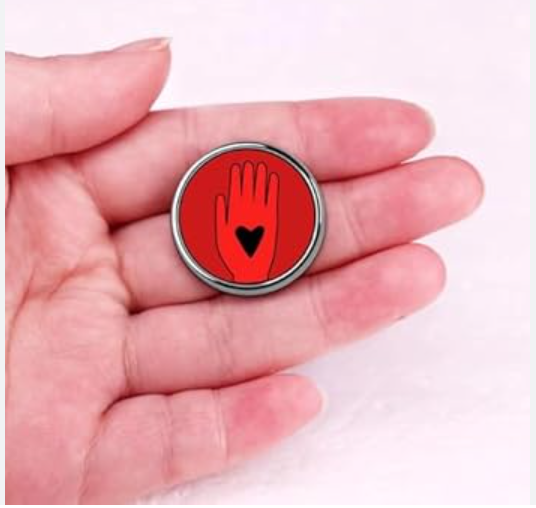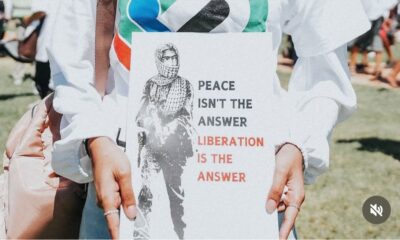
Featured Item

Trend or habit: when to cancel anti-Israel celebrities
It can be deeply upsetting when your favourite international star comes out as anti-Israel on social media. But is one of two negative social media posts reason to boycott that celebrity outright?
South African-born Ari Ingel, the executive director of Creative Community for Peace (CCFP), believes once-off sharing of anti-Israel social media is more a sign of people following a trend because supporting the Palestinians is far more fashionable than supporting Israel.
It’s far more concerning and warranting of action if the celebrity makes a habit of destroying Israel on social media, Ingel said, like actors Mark Ruffalo, Susan Sarandon, and Pink Floyd founder Roger Waters have done.
It’s important for celebrities to understand their power and reach on social media, Ingel says. “There’s a certain responsibility that comes with having so much influence these days. If you are going to be an activist and you do want to speak out about a topic, that’s fine, but make sure you’re educated about it and not just reposting ‘Free Palestine’ or some other statement that somebody else you saw has shared.”
He says the likes of Sarandon, Ruffalo, and Waters constantly post horrific sentiments and claim they are educated about the topic, even if they spew misinformation. “True activists like that are obviously extremely problematic, and they deserve all the condemnation that comes their way.”
“Anti-Israel sentiment posted on social media is typically grounded in misinformation and divorced from facts and history,” says Rolene Marks, spokesperson for the South African Zionist Federation.
“Whether it’s your favourite celebrity or neighbour, if their posts contain false information and you feel strongly about it, you should counter any claims they make by responding with facts,” she said.
Raquel Nathan, a 2024 South African StandWithUs Emmerson Fellow, says the only way to counteract the negativity of those “activist celebrities” is to report them and boycott any future projects and their social media pages. “We need to send them a message that what they are saying isn’t okay. That can be through people en masse reporting inaccurate posts and information and unfollowing those spouting this hatred.”
Ingel agrees, saying that in terms of Waters, who clearly exposed himself as an antisemite, CCFP approached the company that puts out his music, Bertelsmann Music Group (BMG), to convey the fact that it was inappropriate to work with an antisemite like him. BMG severed ties with Waters and Pink Floyd as a result.
When there was a public outcry over Kanye West’s antisemitism, his sponsor, Adidas, cut ties with him.
Ingel reiterated that if a celebrity posts a once-off post on social media that is anti-Israel, they are doing so because it’s a trend. “Many are just posting ‘Free Palestine’ because it’s the thing to do,” he said. “These people don’t know what they’re posting about, they don’t understand what’s going on there, and they are misinformed by being in this echo chamber of disinformation.”
For example, he cites musicians Billie Eilish and Finneas O’Connell, who wore red enamel pins to the Oscars last year associated with the organisation Artists4Ceasefire, a collective of artists and advocates who called for a ceasefire to the Israel-Hamas war in Gaza.
Some in the anti-Israel camp purposefully miseducated people about what these pins signified, Ingel says. The pin, with a red hand in the middle, is a symbol of the murder and capture of two Israeli soldiers in Ramallah in 2000. The image is based on the terrorist coming to the window and proudly displaying Israeli blood on his hands. However, Artists4Ceasefire said the pin was a symbol of community and a call to save lives.
“They wore the pin proudly not because they are necessarily antisemites but because they didn’t understand what that pin really signifies,” he said, “All they were told was that that pin signified that they don’t support children dying. They don’t know that behind that pin is an anti-Israel movement not wanting Israel to respond to the 7 October massacre, and for the Jewish state to capitulate to Hamas.”
However, despite this, Ingel doesn’t place Eilish and O’Connell in the same category as Ruffalo and Waters. They are “stuck in echo chambers of information, where you start seeing only one side of a story – which is invariably the anti-Israel side”, he says.
“They are constantly seeing pictures of dead children and whatever anti-Israel information is out there, and there’s a lot. And all the horrors in the world that aren’t accurate, but that’s what their social media feed looks like.”
Former South African content creator Josh Buchalter compares the feeling to how the Jewish world felt after the 7 October Hamas attack on Israel. “There was that friend, acquaintance, or colleague that you almost expected to show some kind of consideration for the challenges that the Jewish people and Israel were going through but, instead, there was absolute silence and then three months later, there was just criticism against Israel,” he says.
Buchalter says he can still engage with the art of some of these artists, but there’s a line he won’t cross.
“You can still follow them and listen to their music, but there should be that awareness that there’s only so far they can go. It’s about being true to yourself, and understanding that you can still benefit from whatever the celebrity influence or musician gives you.”










